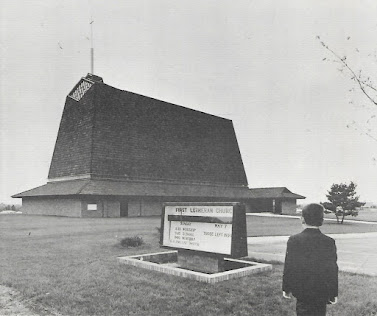What child is this...Refugee Resettlement
By Lacey Studnicka, Director of Advancement- Community Services at LFS
During this season, I am always reminded of God’s miracles. In 15 years of work with refugees at Lutheran Family Services of Nebraska, I have been privileged and honored to see God’s miracles up close.
If you watch the news, you may think hope is lost. 68 million people -- 25 million of whom are children -- are displaced and suffering across the globe. But just when you think there is no hope, miracles appear!
I see the miracle of welcome and the transformation of lives. I watch while members of Nebraska’s Lutheran congregations carefully select items for refugee homes. I watch their curiosity as they shop for “culturally appropriate groceries” at unfamiliar ethnic stores. I see their joy when the refugee family they are sponsoring exits the plane in Nebraska, knowing they are finally safe. I see their patience and compassion as they help our newest neighbors navigate their new home. Thank you for being the light!
Hope is not lost. Hope lies in the connections we make with one another. Hope is alive in welcome. Even though refugee resettlement has declined dramatically over the last two years, more people than ever are expressing their faith through welcome. I will never forget when Bishop Brian Maas said to a crowd of people, “We don’t welcome refugees because they are Lutheran; we welcome them because we are.”
If you have never met a refugee, I encourage you to invite us into your churches and homes. Lutheran Family Services staff would love to visit your congregation with a refugee friend so you can learn about their journey. You will see God’s miracle in their stories.
If you watch the news, you may think hope is lost. 68 million people -- 25 million of whom are children -- are displaced and suffering across the globe. But just when you think there is no hope, miracles appear!
I see the miracle of welcome and the transformation of lives. I watch while members of Nebraska’s Lutheran congregations carefully select items for refugee homes. I watch their curiosity as they shop for “culturally appropriate groceries” at unfamiliar ethnic stores. I see their joy when the refugee family they are sponsoring exits the plane in Nebraska, knowing they are finally safe. I see their patience and compassion as they help our newest neighbors navigate their new home. Thank you for being the light!
Hope is not lost. Hope lies in the connections we make with one another. Hope is alive in welcome. Even though refugee resettlement has declined dramatically over the last two years, more people than ever are expressing their faith through welcome. I will never forget when Bishop Brian Maas said to a crowd of people, “We don’t welcome refugees because they are Lutheran; we welcome them because we are.”
If you have never met a refugee, I encourage you to invite us into your churches and homes. Lutheran Family Services staff would love to visit your congregation with a refugee friend so you can learn about their journey. You will see God’s miracle in their stories.
To hear more about refugee resettlement from Lacey, watch this clip of her TED Talk.
*Editor's Note: Nebraska welcomed more refugees per capita in 2016 than any other state in the country. We have a legacy of being a place of welcome. The refugees we welcome into Nebraska have lived in refugee camps for an average of 15 years, with some living in camps for 25 years or more. They wait to have an opportunity that fewer than 1% of refugees achieve: resettlement, a second chance to live a safe and peaceful life.




Comments
Post a Comment